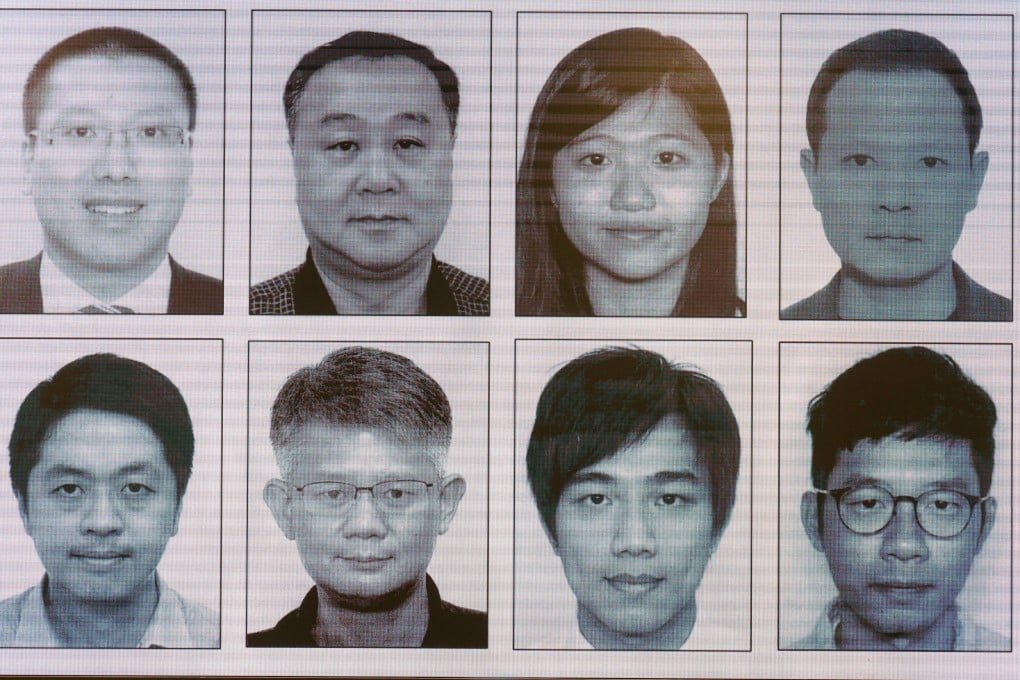Hong Kong national security law: police offer HK$1 million rewards for arrest of 8 people, including 3 ex-lawmakers
- Announcement marks first time bounties offered since legislation took effect, banning acts of secession, subversion, terrorism and collusion with foreign forces
- Suspects, who are overseas, are ex-legislators Nathan Law, Dennis Kwok, Ted Hui, unionist Mung Siu-tat, lawyer Kevin Yam, activists Finn Lau, Anna Kwok and Elmer Yuan

National security police obtained court warrants for the arrests on Monday, spelling out the offences allegedly committed by the fugitives living overseas and marking the first time authorities have taken such a step since the legislation took effect on June 30, 2020.
Beijing’s agency overseeing national security in Hong Kong expressed its firm support for local police to “relentlessly crack down on anti-China culprits who fled”, while the city government issued a statement stressing that the fugitives “should not have any delusion” about evading their liabilities by absconding.

The eight fugitives – selected from the dozens on a wider wanted list – are former legislators Nathan Law Kwun-chung, Dennis Kwok Wing-hang and Ted Hui Chi-fung, unionist Mung Siu-tat, lawyer Kevin Yam Kin-fung, and activists Finn Lau Cho-dik, Anna Kwok Fung-yee and Elmer Yuan Gong-yi.
The wanted notices for the fugitives, last known to be living in Canada, Australia, the United States and Britain, urged anyone with information on their alleged crimes and whereabouts to “contact police without delay”.
“We are absolutely not putting on a show or spreading any terror,” Chief Superintendent Steve Li Kwai-wah of the police force’s National Security Department said at a media briefing on Monday when asked if authorities were creating an atmosphere of “White Terror”. “We are enforcing the law. By offering rewards, what we hope is to apprehend them.”